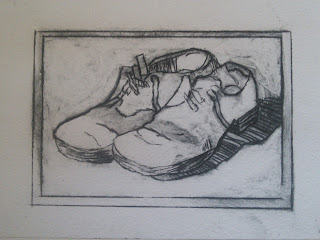My reading matter at the moment is W. G. Sebald’s “Vertigo,”
a strange and intricately woven book typical of the author’s compulsive interest
in memory and his own origins. One short sentence struck me particularly
forcefully, written of the year 1913:
It is curious to
observe, added Salvatore, how in that year everything was moving towards a
single point, at which something would have to happen, whatever the cost.
Of course, those words were laid down with the benefit of
hindsight, but whereas ordinary peoples of the world learn by experience,
politicians and the very powerful are too self-absorbed to heed such lessons
because they seek only self-gratification. As a common person of the world, I
recognise that the essence of Sebald’s few words can equally be applied to
2018, for I have a sense that today events are moving towards each other, like
parallel lines converging at an impending vanishing point. Britain, Europe,
Russia, Korea, the Middle-East, USA, China… meeting at a single point in time
and space when and where something must happen. Something cataclysmic, because
the energy of power must find an outlet.
For now, there is plucked tension in the air, a gravid deliberate
suspense as though the plot of a film is ravelling and building towards an
explosive conclusion. Those caring to look are witnessing the denouement of an incomprehensible
political and demographic storyline – all we lack is the dramatic accompanying
music to guide us. Although I can’t foresee the conclusion, I have the feeling
that when the climax is finally resolved, as it eventually must, everyone involved
will emerge into a stained landscape as if waking from a dream, and they will
look around and say “what have we done?” and “what were we thinking to allow it
to get to this?”
Before that, people of the world will likely be drawn into performing
the most horrendous acts, some in enthusiastic driving seats, others as
passengers allowing themselves to be herded towards internal abattoirs – but
mostly (perhaps the worst of all) looking away and pretending nothing is
happening because of apathy, complaisance and a fearful self-preservation. When
it’s over, we will blame somebody else, of course, for how otherwise can we
cope with the guilt? And we’ll all feel the guilt for a generation or two –
then it will all start again.
Man's inhumanity to man is exceeded not only by the capacity to mourn (hands behind our backs, fingers crossed) but by our inclination to forget. I hope I'm not being prophetic, but I'm scared for my grandchildren's future. In the meantime, party on.










